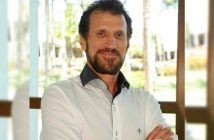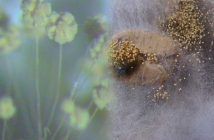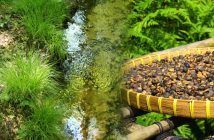The goal is to provide sensory training based on standard references, to enable the correct identification and naming of coffee aromas and flavours associated to the grain quality or defect characteristics
How did you use your time over these months of pandemic? Brazilian scientists Fabiana Carvalho and Verônica Belchior (@thecoffeesensorium) worked hard to create the Flavour Reference kit turned to the training of coffee professionals.
They were cherishing the idea for some time, even before creating the Acid kit in 2019 (to be launched soon), developed to coffee tasters or Q-Grader candidates and, of course, based on these professionals’ needs.

“In the universe of special coffees, it is highly important that the grader will recognize the acidity attribute in the cup, for example”, tells Fabiana Carvalho, founder of Coffee Sensorium.
“With that, we talked a lot and researched even more to create the Flavour Reference kit. For the taster to fully understand what are very positive or exotic, refined notes, and could be a serious defect in the coffee, like riado, unacceptable in a cup”, says Verônica Belchior, who is also Q-Grader.
What is the Flavour Reference kit?
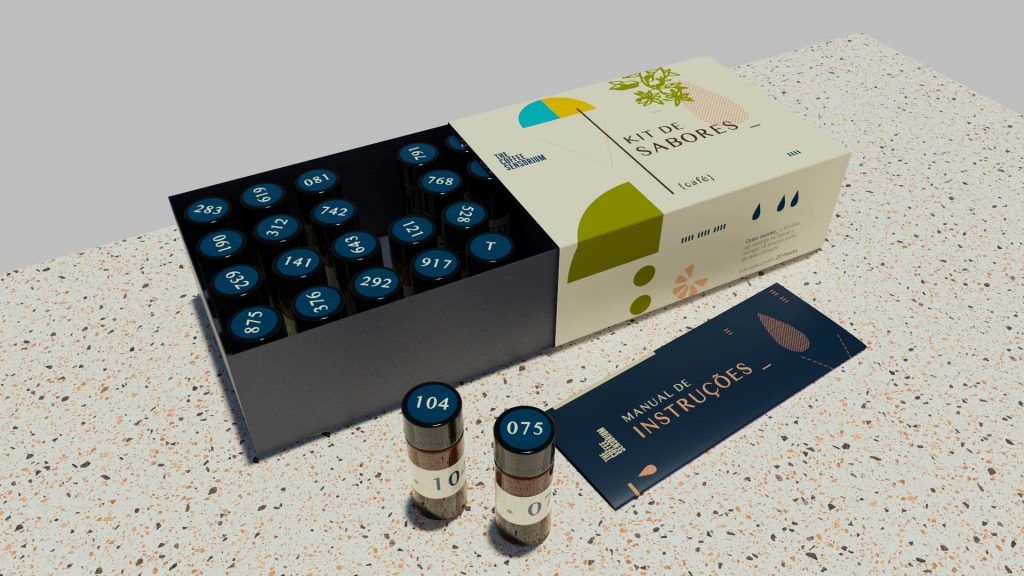
“Sensory training in standardized references is highly important for coffee professionals. This type of qualification enables the correct identification and naming of aroma and flavour notes associated to the coffee quality or defect”, explains Fabiana.
The kit contains 21 references, like banana, apple, clove, floral, fresh pea, cucumber, moldy bread, toasted hazelnut, rubber, medicinal (riado), cereal, peach, cherry, greenish, pear, orange, chocolate, vanilla, caramelized sugar, matured cheese and floral (herbal).
The Coffee Sensorial developed the kit in partnership with UFMG laboratory, which had already developed the kit of acids. The big challenge of the duo was to take the aroma to inside the mouth. “We made a list of what it should contain using as reference SCA (Specialty Coffee Association) Flavour Wheel, which contains the large groups or flavours, like fruity, floral, sweet, spice, nut, plant green and medicinal. “We sought key-references in the Flavour Wheel and, in the scientific literature, the compounds and their concentrations. Because, the compound having the odor of cherry is one thing, and to drip this compound in the cup of coffee without modifying it is something else. It was highly laborious to adjust the solutions’ concentrations. For that we could count on the assistance of a professional from chemistry area”, tells Fabiana. Each flask of compounds can be used up to 25 times.
“It took a lot of work to find the volatile compounds to put in the coffee. Finding out, truly, what is a peach note in the coffee, because, most of the times, it is confusing to the taster. In the case of the peach note – an attribute considered very positive -, when you use the compound, you notice that it is very clear”, explains Belchior.
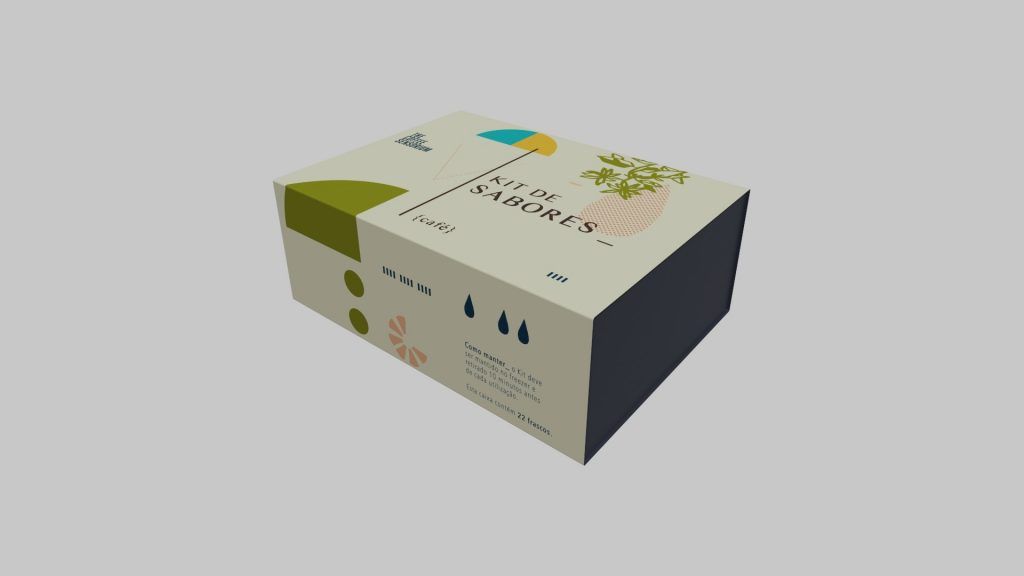
“Likewise, negative characteristics, like riado, or a coffee with low sweetness, were difficult to exemplify. With the kit, it is much easier”, she says “Showing why a given coffee reaches a 90-point score and another only 80, was difficult. The kit is a way to truly demonstrate these differences, and by training like that, when the professional goes to a cupping table, he/she will be much more confident. And the sensory perception gets much more scientific as well”, they emphasize.
“Our core goal is exactly to translate academic, scientific information in a simple and democratic language so that professionals from the food industry will have access to this information. We are building a bridge between researchers and these professionals”, explains Fabiana.
“My professional life clearly reflects this difficulty: I came from the academic work, went to the Industry of food and then became Q-Grader. But the information I received had no logical sequence. I hope people will have available, from now on, and with the Flavour Reference kit, a method of sensory analysis that assists in the construction of knowledge, with fewer mistakes and bias, fewer deviations in coffee description. We expect the coffee professional will have as many tools to their work as the wine professional has”, says Verônica.
Rediscovering Brazilian coffees
The scientists also say that the Flavour Reference kit may help in the communication on Brazilian special coffees in the foreign market. “It is very cool to help the international market understand that Brazil also produces exotic coffees and not only destined to expresso blends. We have our very well-cultivated “bread and butter” coffees. But we also have exotic coffees, after all, we are a continental country and not even we, Brazilians, know our whole diversity”, states Fabiana.
The kit is already available for pre-sale and will be delivered as of June 14. The pre-sale price is R$ 830 plus freight. The kit also includes one explanatory booklet, one infographic and the coffee standard recipe for the tests. For now, only 50 kits will be put on sale. The product will have new versions in the future, according to the market evolution.
“We want to offer more freedom to the coffee professional, for him/her to train with some protocol. The result is that the market will improve, since the Flavour Reference kit was created to make more democratic the academic content, and all this knowledge can be easily applied. We hope the industry will grow, and certain myths will fall from the Olympus.
The Flavour Reference kit can also be used by professionals from similar areas like beer, wine, chocolate and tea, among others.
The scientists
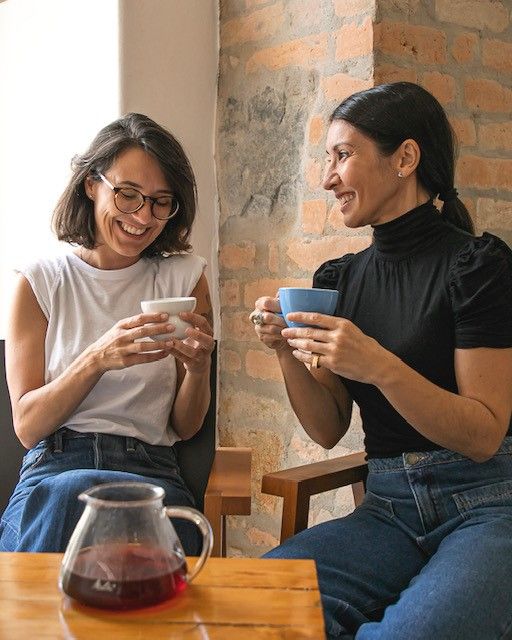
Fabiana Carvalho is neuroscientist. She is biologist, bachelor and master in Biochemistry at UFMG, where she specialized in neurochemistry and processes of perception and memory. She is doctor in Psychobiology at USP and University of Glasgow, where she used neuro-image to investigate how the human brain perceives and predicts events from data of experience. She completed her first post-doctorate at the King’s College London, England, and her second post-doctorate at USP. Today she is researcher at FEA-Unicamp where she investigates, in collaboration with the University of Oxford (England), the effect of external factors on the perception of flavour of special coffees, as well as consumer’s acceptance and purchase intention. Verônica Belchior is biologist, master in Ecology at UFJF and doctor in Food Science at UFMG and Universidade do Porto, Portugal. She is Q-Grader and ministers courses in special coffee sensory analysis and coffee chemistry areas. In her doctorate, she studied the construction of statistical models predictive of the quality of special coffees classified by the SCA protocol. Today she is attending her post-doctorate at UFMG continuing with her doctorate research theme.

